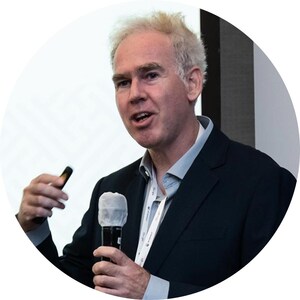CAMBRIDGE, Mass., Oct. 11, 2021 /PRNewswire/ -- On Wednesday, October 27, at ACEEE's National Conference on Energy Efficiency as a Resource (EER), Sense VP of Technology George Zavaliagkos will discuss how home energy monitoring technology can be used to assess residential air conditioning. Sense technology tracks real-time electricity usage in homes and uses machine learning and device disaggregation to identify individual devices by their energy signatures.
He'll join industry experts in a session that explores how new tools for residential energy efficiency programs can be used to improve delivery and targeting of residential upgrades to achieve high energy savings for space heating and cooling. As more utilities set ambitious goals for carbon reduction, and policymakers expand their expectations for energy efficiency programs, the speakers will consider how energy efficiency is taking on a transformational role in greenhouse gas reductions, job creation and customer affordability.
After decades of success, energy efficiency programs have saturated traditional incentives like lighting upgrades while other approaches have failed to achieve or sustain cost effectiveness. Smart home technology can now yield entirely new insights that increase meaningful participation by customers, drive energy savings, and reduce program costs.
Zavaliagkos will share insights from Sense research that could provide a road map to utilities to target and engage with customers who have the biggest potential impact on energy efficiency goals. A new study by Sense analyzed detailed home energy data to quantify air conditioning usage. Using anonymized data gathered from approximately 15,000 homes with the Sense Home Energy Monitor, the study showed that a disproportionate amount of air conditioning use came from a cadre of the most inefficient homes.
The study found that:
- Customers in the most inefficient homes spend almost four times as much to cool their homes than customers with the most efficient homes, leading to an average of $882 extra spent on cooling per year;
- The twenty percent of homes with highest cooling use have a disproportionate impact, accounting for 45% of all cooling consumption nationwide;
- 52M tons of carbon emissions could be avoided annually if the HVAC inefficiency in this group of homes were addressed;
- Potential savings to U.S. consumers is $15.3 billion annually;
- 115 billion kilowatt hours could be saved annually.
For utilities looking to meet energy efficiency targets and improve program cost effectiveness, personalized data about AC performance in customers' homes could provide specific and credible information to message savings and other benefits to customers, encouraging them to take part in programs.
About ACEEE and EER
The American Council for an Energy-Efficient Economy (ACEEE), a nonprofit research organization, develops transformative policies to reduce energy waste and combat climate change. Its independent analysis advances investments, programs, and behaviors that use energy more effectively and help build an equitable clean energy future.
ACEEE sponsors The National Conference on Energy Efficiency as a Resource (EER), the premier U.S. biennial conference on policies and programs to reduce customers' energy waste and thus help utilities meet the grid's demand for electricity. The virtual event takes place October 19-21 and October 26-27. The session on Energy Efficiency takes place on October 27 at 12:30 pm.
About Sense
Sense's mission is to reduce global carbon emissions by making homes smarter and efficient. We empower people to care for their homes and families while contributing to a cleaner, more resilient future. Founded in 2013 by pioneers in speech recognition, Sense uses machine learning technology to provide real-time insights on device behavior, even for those devices that are not "smart." Customers rely on Sense for a wide range of uses including monitoring their home appliances, determining whether they left appliances running and identifying how to reduce their energy costs. Sense has received investments from two of the world's largest energy technology companies, Schneider Electric and Landis + Gyr. Sense is headquartered in Cambridge, Mass. To make sense of your energy, visit: https://sense.com.
SOURCE Sense

Related Links
WANT YOUR COMPANY'S NEWS FEATURED ON PRNEWSWIRE.COM?
Newsrooms &
Influencers
Digital Media
Outlets
Journalists
Opted In






Share this article